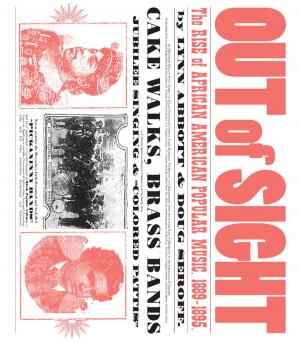Civil Rights in the White Literary Imagination
Innocence by Association
Fiction & Literature, Literary Theory & Criticism, American, Nonfiction, Social & Cultural Studies, Social Science, Cultural Studies, African-American Studies| Author: | Jonathan W. Gray | ISBN: | 9781617036507 |
| Publisher: | University Press of Mississippi | Publication: | January 16, 2013 |
| Imprint: | University Press of Mississippi | Language: | English |
| Author: | Jonathan W. Gray |
| ISBN: | 9781617036507 |
| Publisher: | University Press of Mississippi |
| Publication: | January 16, 2013 |
| Imprint: | University Press of Mississippi |
| Language: | English |
The statement, "The Civil Rights Movement changed America," though true, has become something of a cliché. Civil rights in the White Literary Imagination seeks to determine how, exactly, the Civil Rights Movement changed the literary possibilities of four iconic American writers: Robert Penn Warren, Norman Mailer, Eudora Welty, and William Styron. Each of these writers published significant works prior to the Brown v. Board of Education case in 1954 and the Montgomery Bus Boycott that began in December of the following year, making it possible to trace their evolution in reaction to these events. The work these writers crafted in response to the upheaval of the day, from Warren's Who Speaks for the Negro?, to Mailer's "The White Negro" to Welty's "Where Is the Voice Coming From?" to Styron's Confessions of Nat Turner, reveal much about their own feeling in the moment even as they contribute to the national conversation that centered on race and democracy.
By examining these works closely, Gray posits the argument that these writers significantly shaped discourse on civil rights as the movement was occurring but did so in ways that--intentionally or not--often relied upon a notion of the relative innocence of the South with regard to racial affairs, and on a construct of African Americans as politically and/or culturally na*ve. As these writers grappled with race and the myth of southern nobility, their work developed in ways that were simultaneously sympathetic of, and condescending to, black intellectual thought occurring at the same time.
The statement, "The Civil Rights Movement changed America," though true, has become something of a cliché. Civil rights in the White Literary Imagination seeks to determine how, exactly, the Civil Rights Movement changed the literary possibilities of four iconic American writers: Robert Penn Warren, Norman Mailer, Eudora Welty, and William Styron. Each of these writers published significant works prior to the Brown v. Board of Education case in 1954 and the Montgomery Bus Boycott that began in December of the following year, making it possible to trace their evolution in reaction to these events. The work these writers crafted in response to the upheaval of the day, from Warren's Who Speaks for the Negro?, to Mailer's "The White Negro" to Welty's "Where Is the Voice Coming From?" to Styron's Confessions of Nat Turner, reveal much about their own feeling in the moment even as they contribute to the national conversation that centered on race and democracy.
By examining these works closely, Gray posits the argument that these writers significantly shaped discourse on civil rights as the movement was occurring but did so in ways that--intentionally or not--often relied upon a notion of the relative innocence of the South with regard to racial affairs, and on a construct of African Americans as politically and/or culturally na*ve. As these writers grappled with race and the myth of southern nobility, their work developed in ways that were simultaneously sympathetic of, and condescending to, black intellectual thought occurring at the same time.















